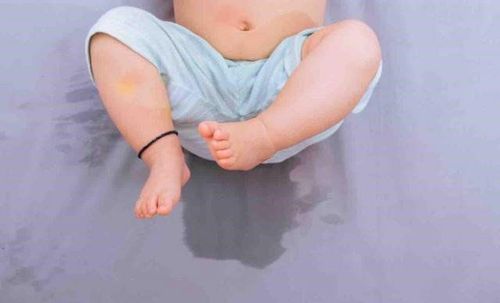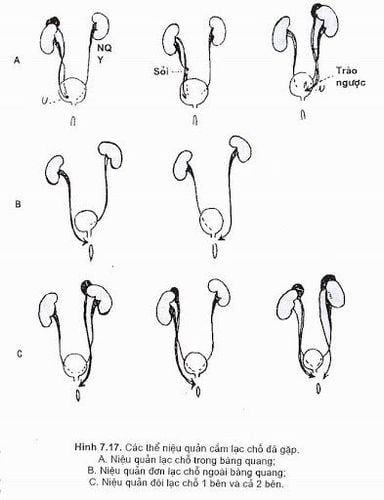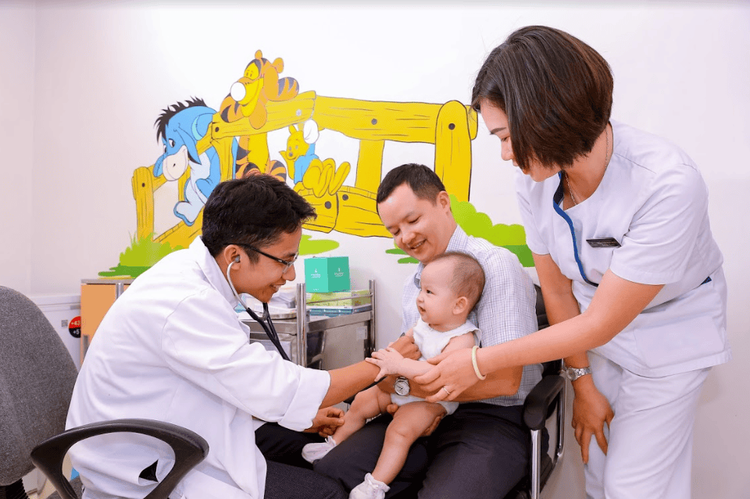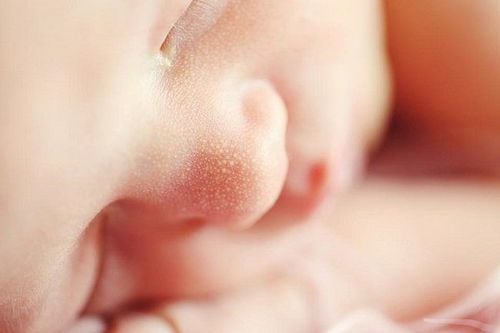This is an automatically translated article.
The article was professionally consulted with Specialist Doctor II Cao Thi Thanh - Pediatrician - Department of Pediatrics - Neonatology - Vinmec Hai Phong International General Hospital.Diarrhea is a common disease in young children, sometimes considered a normal physiological condition and is of little concern. However, when children are at an age of awareness and still allow leakage, this becomes a real concern for the child's parents and family members.
Diarrhea is a potentially life-threatening disease that causes children to have constant urinary tract infections, kidney failure, or kidney-related diseases. The main causes of urinary leakage in clinical practice are bedwetting, ectopic ureter and neurogenic bladder syndrome.
1. Bedwetting
Bedwetting is the involuntary urination at night, usually occurring in children aged 4-5 years, which is a normal age of development and can control and control their own urination. Bedwetting can occur more than 4 nights in a week, accompanied by a number of pathological symptoms such as irritation in the perineal area, behavioral disorders,...The main cause of bed-wetting comes has not yet been clearly defined. However, to explain this phenomenon, researchers have put forward a number of factors related to this disease such as genetic factors, psychological factors, sleep, hormonal regulation... Most diseases Bedwetting will go away on its own as the child gets older, and girls will have completed bladder control before boys.
Bedwetting can appear from childhood and persist called primary bedwetting. However, there are also cases where bedwetting occurs after the time when the child is aware and self-controlled a behavior called secondary bedwetting.

Psychological treatment: This method is often indicated for children with psychological or neurological trauma. Treatment by training method: Exercise conditioned reflexes to the child's urination. With prolonged practice, gradually increasing the bladder's functional capacity along with the habit of urinating before sleeping will help children actively urinate during the night. Drug treatment: Using drugs is sometimes not very effective but also brings side effects and is prone to relapse when stopping the drug. Commonly used drugs: anticholinergics (the effect of increasing bladder capacity), antidepressants, antidiuretic hormones...
2. Ectopic ureter
The ureters carry filtered urine down from the kidneys and into the lumen of the bladder, where urine is stored and expelled due to external constriction of the urethra and internal contraction of the bladder neck. However, when the ureter attaches to an abnormal position, it causes urine leakage.In girls, persistent urine leakage is often associated with ectopic ureteropathy, and urine is confirmed by examination of the perineum and external genitalia. In boys, the disease is less common. But, for boys with ectopic ureters, it will often lead to orchitis - epididymitis, inflammation, pus discharge at the urethral mouth.
Diagnosis of ectopic ureter usually uses tests such as:
Retrograde cystography: Assess bladder condition, detect ureteral reflux. Ultrasound: Detect double ureteral pathology in girls, kidney atrophy in boys. Cystoscopy. Nephrogram: Determine kidney function. Treatment of ectopic ureter is mainly surgical. However, in each case, it can be surgical resection or kidney-conserving surgery.

3. Neurogenic bladder syndrome
The bladder will perform well the function of storing and excreting urine under the coordinated control of the nervous system, including the sympathetic system, the parasympathetic system and the independent nervous system. When the nerve is damaged, it affects the nerve supply to the bladder and the function of the bladder. This is called neurogenic bladder syndrome. This syndrome, if left untreated, will lead to complications of bladder stasis and recurrent urinary tract infections that will cause impaired kidney function, which can lead to an early death risk.Causes of neurogenic bladder syndrome can be congenital or acquired. Congenital causes are usually sacral aplasia, myelomeningocele, or neural tube junction regurgitation. As for the acquired case, the common cause is spinal cord injury, inflammation or compression by tumors such as neurofibromas or sacrococcygeal tumors.

Drug treatment: Mainly using anticholinergic drugs to increase bladder capacity and increase bladder neck and urinary resistance. religion. Hourly Clearing: This method is mainly to avoid stasis and infection. Surgery to hang the bladder on the pubic bone. Shape to increase bladder capacity. Diarrhea is a life-threatening disease in young children that can cause loss of kidney function and dangerous complications. Therefore, if there is leakage of urine in young children, it is necessary to have a careful clinical examination as well as tests for timely diagnosis and treatment.
Please dial HOTLINE for more information or register for an appointment HERE. Download MyVinmec app to make appointments faster and to manage your bookings easily.














